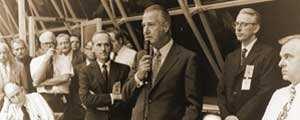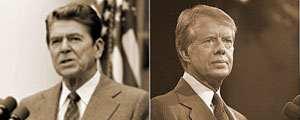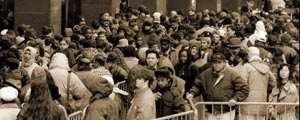In February 1941, ║┌┴¤═° found more than six in 10 Americans in favor of abolishing the poll taxes still prevalent in the American South. A majority of adults in the five southern states that had no poll tax at that time also wanted to abolish them. However, across the eight southern states where poll taxes were still in force -- Alabama, Arkansas, Georgia, Mississippi, South Carolina, Tennessee, Texas and Virginia -- the majority of residents wanted to keep them.
| Abolish | Retain | No opinion | |||||||||||||||||||||||||||||||||||||||||||||||||||||||||||||||||||||||||||||||||||||||||||||||||
|---|---|---|---|---|---|---|---|---|---|---|---|---|---|---|---|---|---|---|---|---|---|---|---|---|---|---|---|---|---|---|---|---|---|---|---|---|---|---|---|---|---|---|---|---|---|---|---|---|---|---|---|---|---|---|---|---|---|---|---|---|---|---|---|---|---|---|---|---|---|---|---|---|---|---|---|---|---|---|---|---|---|---|---|---|---|---|---|---|---|---|---|---|---|---|---|---|---|---|---|
| % | % | % | |||||||||||||||||||||||||||||||||||||||||||||||||||||||||||||||||||||||||||||||||||||||||||||||||
| National adults | 63 | 25 | 12 | ||||||||||||||||||||||||||||||||||||||||||||||||||||||||||||||||||||||||||||||||||||||||||||||||
| Southern states with no poll tax | 51 | 36 | 13 | ||||||||||||||||||||||||||||||||||||||||||||||||||||||||||||||||||||||||||||||||||||||||||||||||
| Southern states with poll tax | 35 | 53 | 12 | ||||||||||||||||||||||||||||||||||||||||||||||||||||||||||||||||||||||||||||||||||||||||||||||||
| Feb 16-21, 1941 | |||||||||||||||||||||||||||||||||||||||||||||||||||||||||||||||||||||||||||||||||||||||||||||||||||
| ║┌┴¤═° | |||||||||||||||||||||||||||||||||||||||||||||||||||||||||||||||||||||||||||||||||||||||||||||||||||
Poll taxes, which charged voters $1 to $2 () to register to vote, emerged in the South after the Civil War as a way to prevent the poor, and particularly African Americans, from participating in elections. In combination with literacy tests, "," and onerous rules about when and how to pay the poll tax, these laws resulted in a sharp drop-off in voter registration among the target groups.
║┌┴¤═°'s April 2, 1941, news release presented the unvarnished views of several southern poll respondents about the poll tax. A 76-year-old Arkansas farmer who favored abolishing the tax said, "You can't find a man in this whole country that voted for the poll tax in the first place -- it was just put on and run over the people." Another Arkansas farmer said, "It's gotten so rotten the way they purchase those poll taxes that the whole poll tax system ought to be done away with."
But respondents in favor of retaining the poll tax expressed very different perspectives. A 40-year-old farm wife in Mississippi plainly said, "Poll taxes help pay for the schools and keep the Negroes from voting." An insurance agent from Virginia expressed a more civic-minded view, saying, "We ought to keep the poll tax because when you pay a tax you're more interested in the results of an election." And then there was the "poor white farmer in the deep South" who said, "Better keep the poll tax because if we don't have it some people will just vote 'cause somebody gives 'em a bottle of whiskey or a dollar bill."

The to the U.S. Constitution, passed by Congress on Aug. 27, 1962, and ratified on Jan. 23, 1964, ended the use of poll taxes in federal elections. It would be another two years before the the use of poll taxes in state and local elections, finally putting an end to this chapter in the history of voting discrimination.
Read the original ║┌┴¤═° poll release.
These data can be found in .
Read more from the ║┌┴¤═° Vault.



